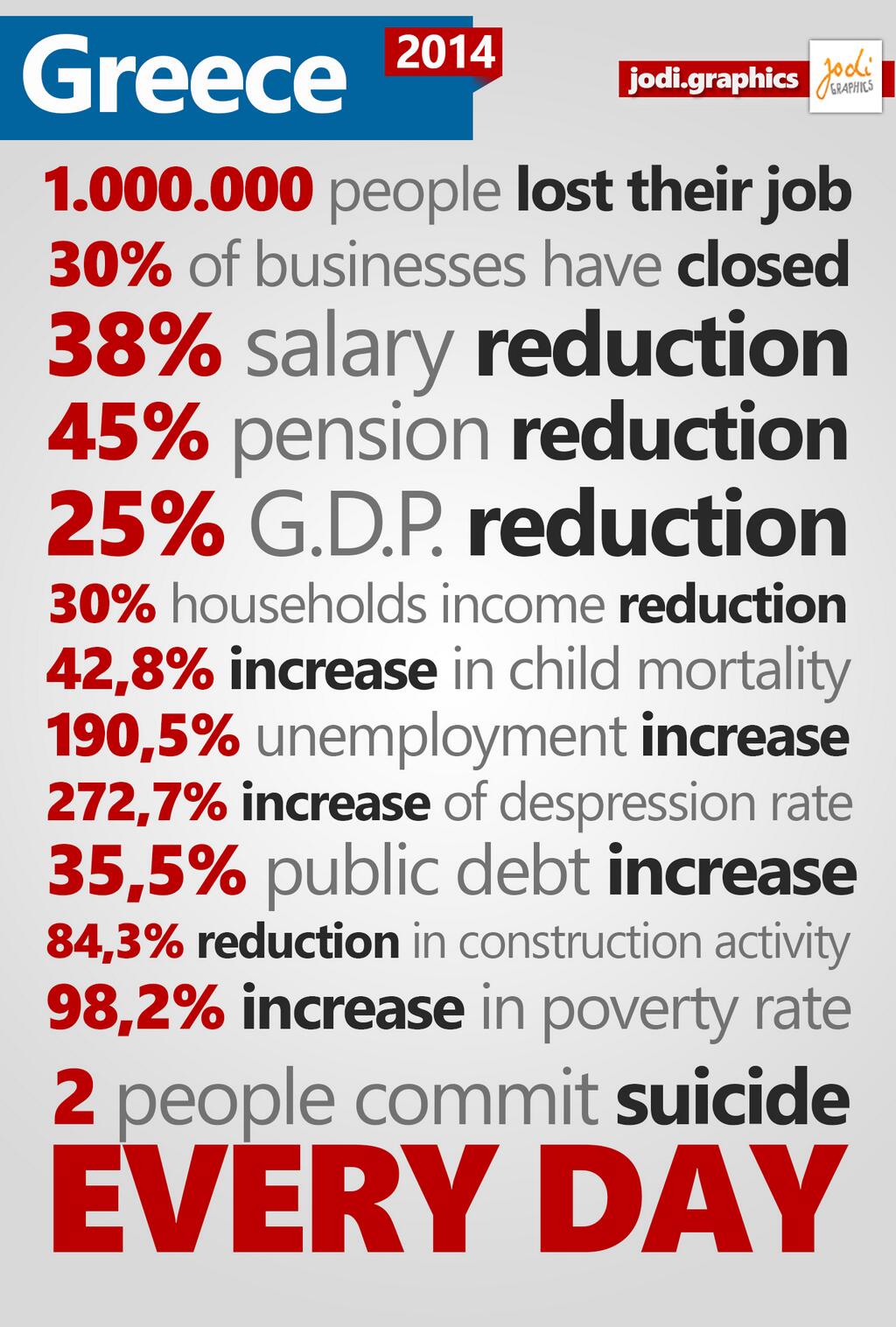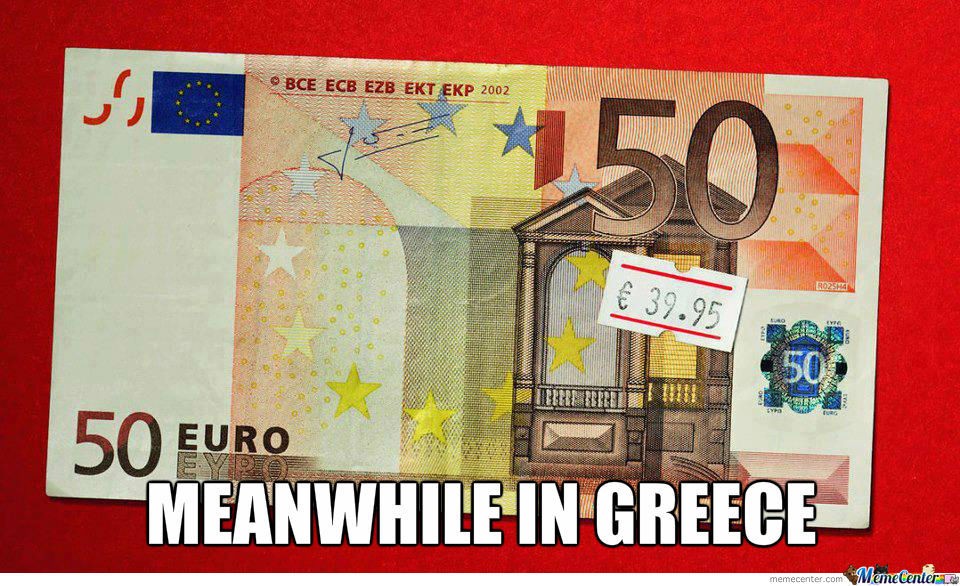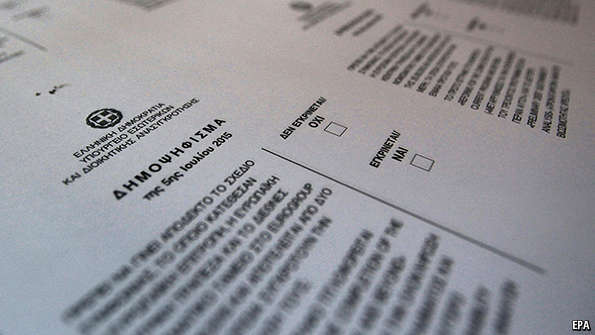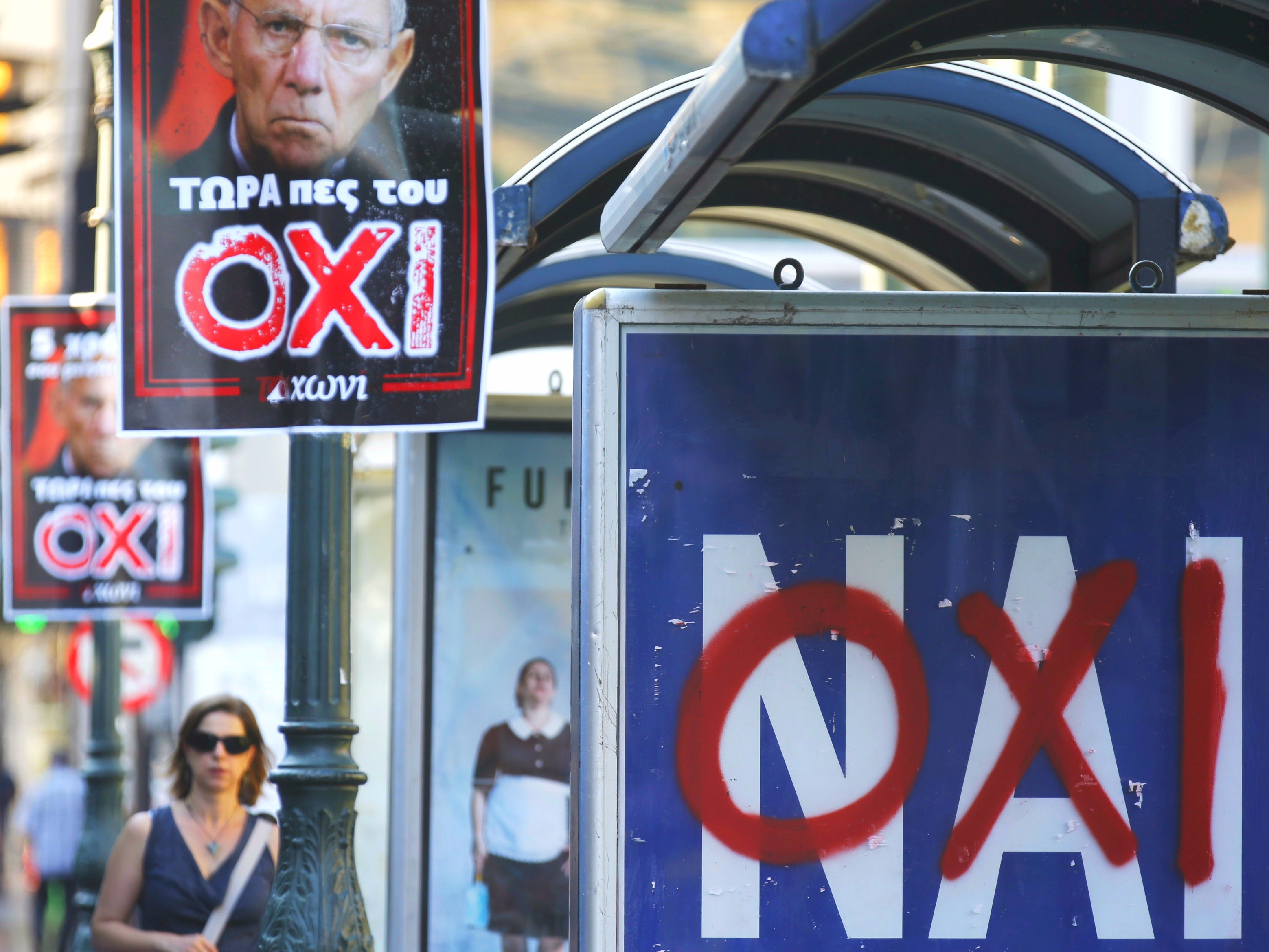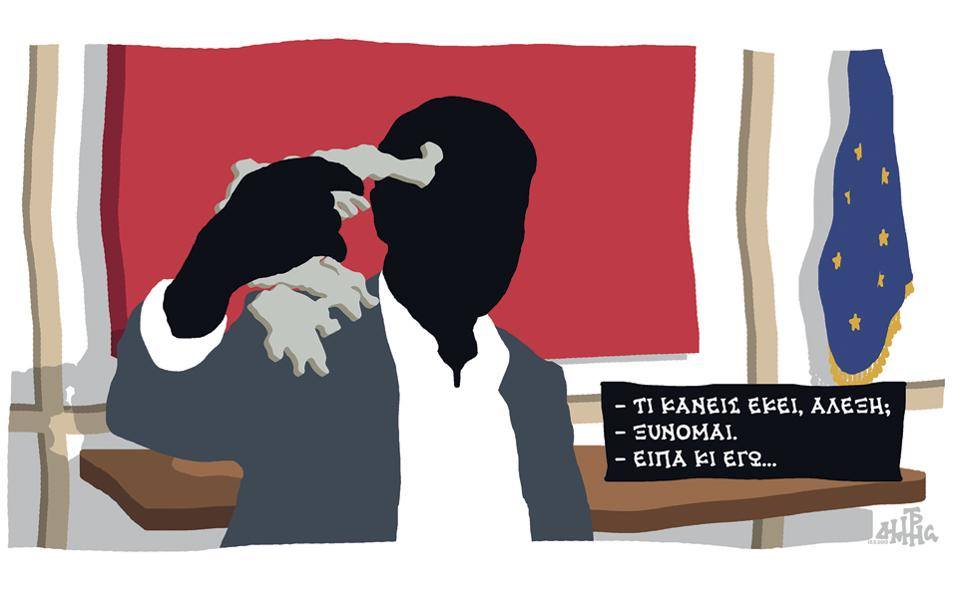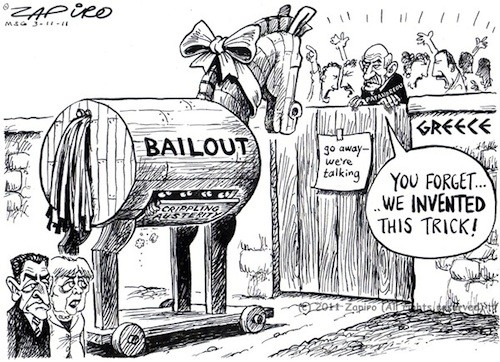Another nail will be placed in Greece’s coffin of austerity measures in a crisis that is not only changing most Greek people’s lives for the worst but also changing language as we know it. Here are some terms that have become commonplace as the crisis unfolds.
AUSTERITY Plan A, difficult economic measures to cut expenditure. Below are the results of Austerity in Greece in figures:
BAIL-IN A bank holiday where capital controls are imposed is followed by cuts to people’s deposits (see CAPITAL CONTROLS and HAIRCUT)
BAILOUT Lines of credit given to Greece to save banks or repay interest rates from previous bailouts
BANK HOLIDAY Imposed closure to banks so that capital controls can be imposed (see CAPITAL CONTROLS)
BITCOIN A parallel currency that can be used along with the euro, though the most likely plan would have been to use the old drachma currency
BRUSSELS GROUP / TROIKA / THREE INSTITUTIONS Representatives of Greece’s creditors from the European Commission, European Central Bank and International Monetary fund
CAPITAL CONTROLS Measures taken by a government, central bank to limit the flow of foreign capital in and out of the domestic economy. In Greece, this means only 50-60 euros per day available at ATM machines and payment of pensions in installments.
CREATIVE VAGUENESS An agreement that is purposely not succinct so that it is open for interpretation and exploitation in any way people making the deal see fit e.g. the February 20 Eurogroup agreement viewed by Greece as a success, or the referendum question where the sweeping majority said ‘No’ but the bailout reforms they voted against were imposed anyway. The phrase was first coined by the creatively vague former finance minister Yanis Varoufakis.
ELA Emergency Liquidity Assistance given by a central bank to a solvent financial institution facing temporary liquidity problems
GERMANOTSOLIAS A slang term for Greeks who collaborated with Germany during World War II saw a spike in numbers over the past week. The use of Nazi collaborationist slang in Greece cropped up as an angry response toward Germany and German Chancellor Angela Merkel, the queen of austerity.
GREXIT Greek + exit is used when discussing Greece’s possibility of dropping out of the euro instead of acceding to demands for more budget cuts. The word describes Greece’s departure from the eurozone. There is also a Brexit, Frexit, Spexit etc.
GREXIT German lemon vodka beverage launched on June 30 when Greece defaulted from its IMF repayment.

GREXIDENT An accidental Grexit that would have the same results as a Grexit, with the difference being it would not happen by choice.
GREXODUS Grexit is from the latin ‘exit’, so Grexodus was viewed as a better term to coin the phrase due to the Greek origins of the term.
GREFERENDUM The referendum that took part on July 5 when Greeks delivered a resounding “No” to creditors demands and austerity – as if the election results on January 25 were not a loud and clear call for an end to the crippling matters.
GRIMBO Greece in a zombie state being in the euro but without money.
GRISIS Greek crisis
HAIRCUT In finance a haircut is a percentage reduction of the amount that will be repaid to creditors.
MEMORANDUM 1, 2 and 3 The loathed bailout packages (see bailout) imposed by what most Greeks believe to be “loan sharks” (see GERMANOTSOLIAS and THREE INSTITUTIONS)
NO Supposedly supposed to mean ‘No’ to the tough bailout demands voted on by 251 politicians in Greek Parliament at dawn on Friday, July 11, but has come to actually means ‘Yes’ due to creative vagueness (see GREFERENDUM and YES)
POPULAR MANDATE Radical Left Coalition (SYRIZA) PM Alexis Tsipras has made much ado about the ‘popular mandate’ that won him the January 25 elections after he pledged to end austerity and memorandums. He also received a ‘popular mandate’ when he held the Greferendum that received a resounding ‘No’.
TROJAN HORSE Ancient Greek mythology couldn’t help but enter the Greek crisis Lexicon. In “crisis speak” a Torjan Horse is what Germany considers any deal presented by Greece
QE Quantitative easing is the Federal Reserve’s effort to spur economic growth
QE2 The second round of Quantitative Easing
YES Yes to creditors reforms and continued austerity in Greece according to the referendum of July 5, however most people interpreted it to mean Yes to Europe by applying a dose of creative vagueness (See CREATIVE VAGUENESS, GREFERENDUM and NO)
Still confused? Watch this –
Greek Crisis Lexicon [excerpt] ©2012 from Yiorgos Nalpantidis on Vimeo.

